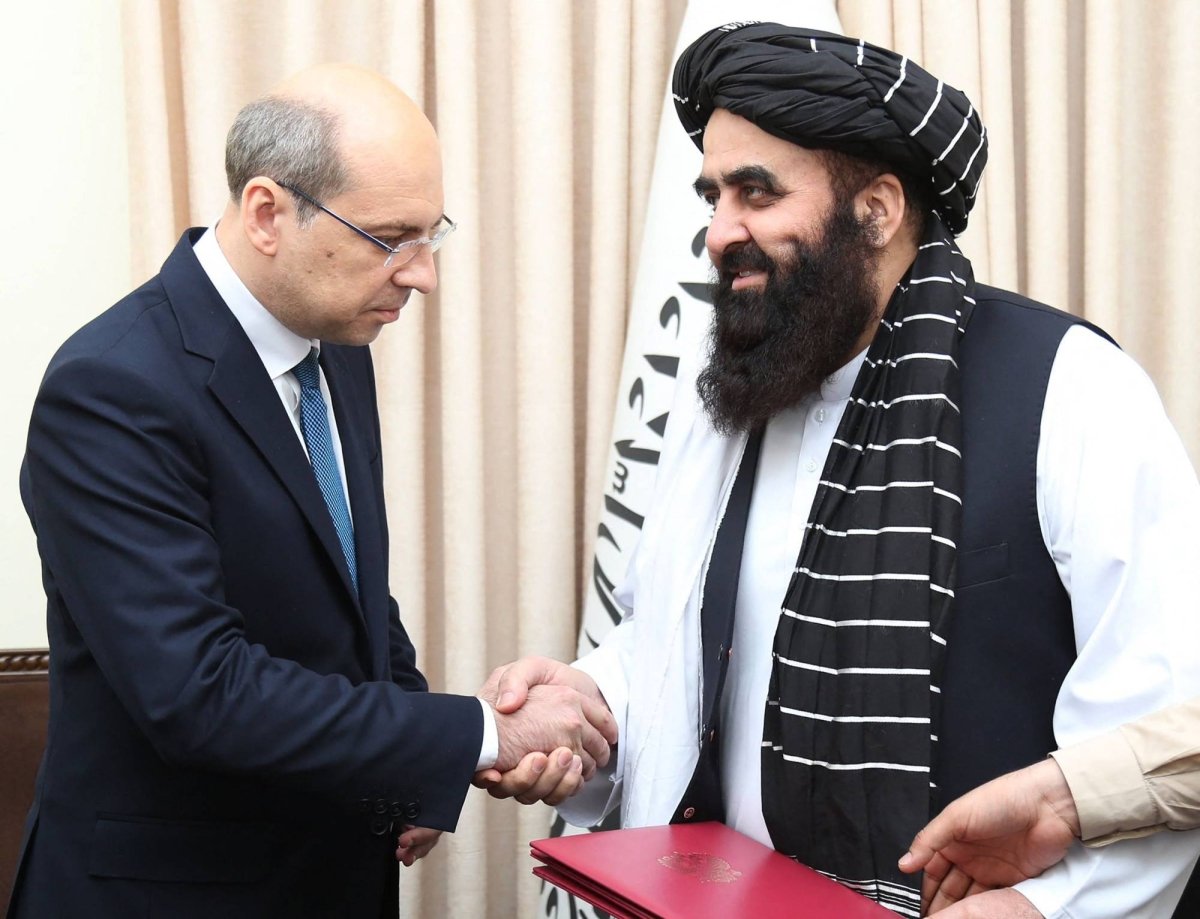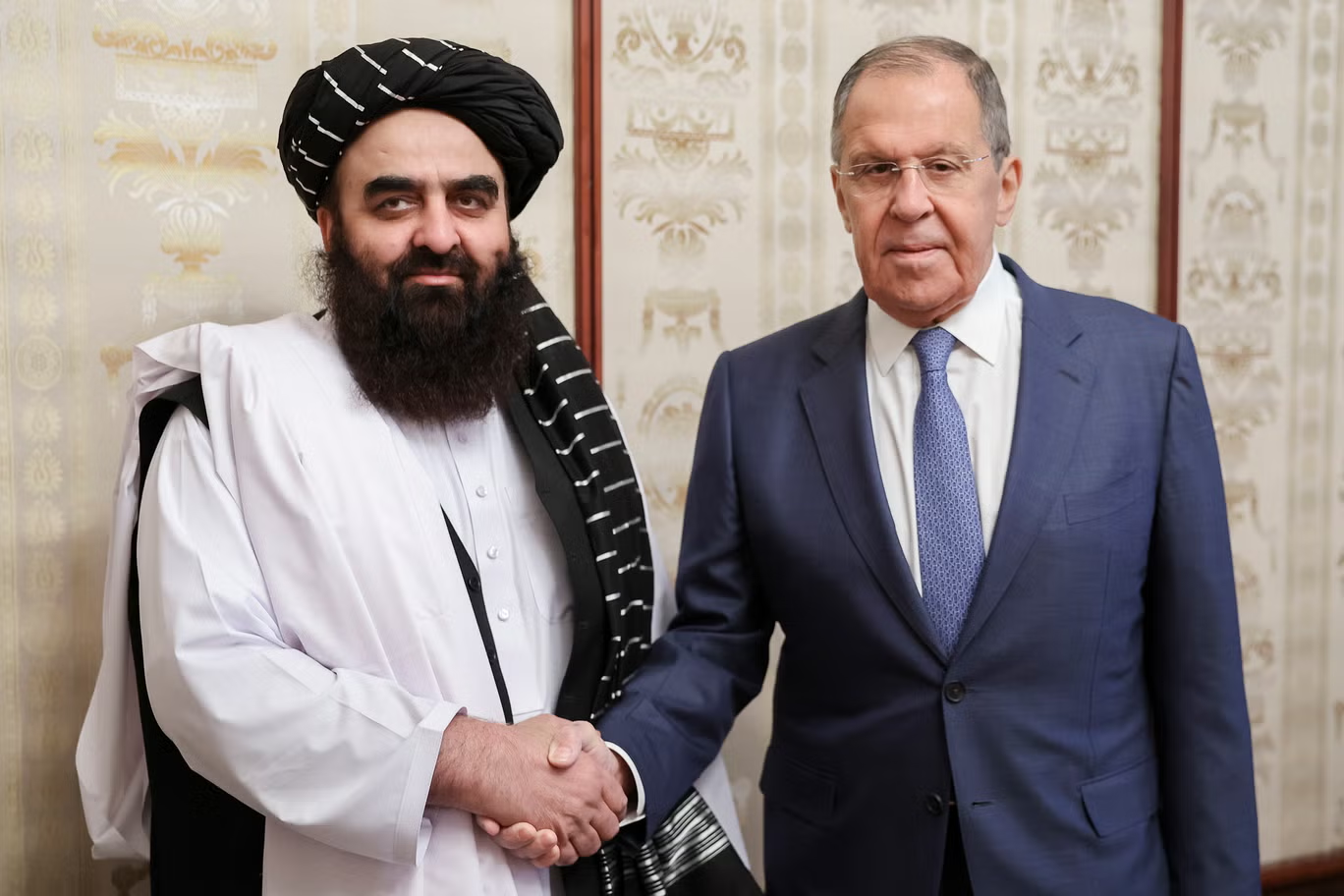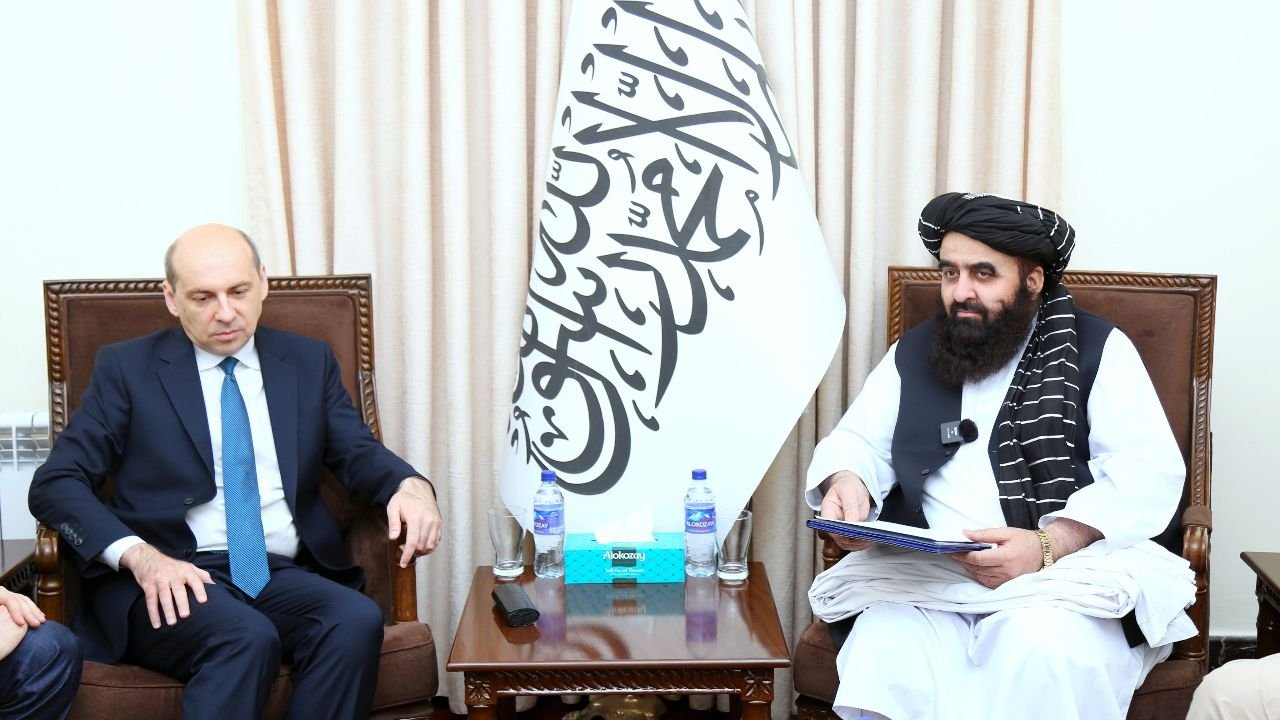MOSCOW, Russia — In a move that has drawn strong condemnation from opposition figures, Russia has become the first country to formally recognize the Taliban government in Afghanistan. This decision marks a significant milestone for the Taliban, nearly four years after they seized power in Kabul.
Afghan Foreign Minister Amir Khan Muttaqi expressed hope that Russia’s recognition would serve as a precedent for other nations, which have largely been reluctant to acknowledge a regime that enforces a strict interpretation of Sharia law, accompanied by severe restrictions on the rights of women and girls.
Critics, however, immediately voiced alarm.
Former Afghan politician Fawzia Koofi warned that “any move by any country to normalise relations with the Taliban will not bring peace it will legitimise impunity.” Koofi further cautioned that “such steps risk endangering not just the people of Afghanistan, but global security.”
Similarly, the Afghan Women’s Political Participation Network stated that Russia’s recognition legitimizes “a regime that is authoritarian, anti-women, and actively dismantling basic civil rights.”
The Taliban government has previously asserted that it respects women’s rights in accordance with their interpretation of Afghan culture and Islamic law.
However, since their takeover in 2021, girls over the age of 12 have been barred from education, and women from many professions.
Restrictions have also been imposed on how far a woman can travel without a male chaperone, and decrees have been issued regarding women raising their voices in public.
Foreign Minister Muttaqi hailed Moscow’s recognition, which occurred on Thursday, as “a new phase of positive relations, mutual respect, and constructive engagement,” describing the decision as “courageous.”
Russia’s foreign ministry indicated potential for “commercial and economic” cooperation in sectors such as “energy, transportation, agriculture and infrastructure.” It also affirmed its commitment to continue assisting Kabul in combating terrorism and drug trafficking.

Russia was among the very few countries that did not close their embassy in Afghanistan following the Taliban’s rapid takeover in 2021, which came after the withdrawal of US troops.
The country was also the first to sign an international economic deal with the Taliban in 2022, agreeing to supply oil, gas, and wheat to Afghanistan.
The Taliban was removed from Russia’s list of terrorist organizations in April of this year, and Russian President Vladimir Putin referred to the Taliban as an “ally” in fighting terrorism in July last year.
Taliban representatives had visited Moscow for talks as early as 2018.
Despite recent rapprochement, the two countries share a complex history. The Soviet Union, which included Russia, invaded Afghanistan in 1979, engaging in a nine-year war that resulted in the loss of 15,000 Soviet personnel.
The Soviet Union’s decision to install a Soviet-backed government in Kabul led to its international isolation and eventual withdrawal in February 1989.
In its statement, the Afghan Women’s Political Participation Network noted it had not forgotten “Russia’s role in the destruction of Afghanistan during the Soviet invasion.”

The network added, “Today, its political interference and direct support for the Taliban represent a continuation of those same destructive strategies, now under the banner of diplomacy.”
Also Read: Taliban arrests 14 in Afghanistan for playing music and singing
Dr. Rangin Dadfar Spanta, a former Afghan national security adviser under the preceding Western-backed government, described Russia’s decision as “regrettable,” predicting, “This is just the beginning; in the absence of widespread resistance, others will follow Russia.”
Strict sanctions were imposed on Afghanistan in 2021 by the United Nations Security Council, most notably the freezing of approximately $9 billion (£6.6 billion) in assets.
The UN has stated that the rules impacting women amount to “gender apartheid,” while also reporting public floggings and brutal attacks on former government officials.
While most countries closed their embassies after 2021, China, the United Arab Emirates, Uzbekistan, and Pakistan have since designated ambassadors to Kabul.

